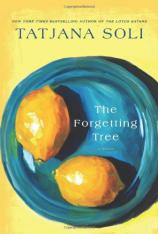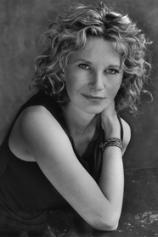Author Talk: September 2013
Question: The Forgetting Tree is your second novel. Was it easier or harder to write than the first?
Tatjana Soli: I joke that it is my second first novel. I had written drafts of it before my first novel was accepted for publication, so at the time I felt free to do something that interested me, without really thinking about audience. I had just completed my MFA, and I wanted a different challenge than my first book. Writers I admire such as Jennifer Egan and David Mitchell reinvent themselves with each book, and temperamentally that appeals to me. I was interested in combining realism with mystery and fantasy elements. This is an area that Southern writers freely write in, but I was also thinking of the fantasy or poetic realism in books that I love, such as Wide Sargasso Sea, Jane Eyre, Wuthering Heights, even The English Patient and Housekeeping.
What pleased me was that my editor immediately said she recognized many of the same preoccupations and themes as my first book, yet the books are entirely different in subject and tone. In terms of being easier, no, it wasn’t easier at all. If it was, I’d be worried that I wasn’t taking enough risks.
Q: What does the title mean?
TS: The novel takes place on a citrus farm in Southern California, so trees are literally vital to my main character, but the idea of a forgetting tree is from the passage of slaves from Africa to the new world. Ritualistically the slaves were turned around the tree — men, nine times; women, seven times — and afterward it was hoped they would forget their pasts and not pine for their old lives, would not rebel. It’s such a powerful metaphor. My main characters, Claire and Minna, are haunted by the past.
Q: Going back to the word mystery, this novel is part mystery. Would you talk about that (without spoilers)?
TS: I do think it’s a mystery, both on the level of plot and character. There’s a line in the book: “exotic is on the inside.” In my first book, the exotic was on the outside, and in this one the setting is very domestic. Yet as the story progresses, it becomes strange, exotic, violent. I joke and call it California Gothic.
Q: Where do you get your ideas?
TS: It’s always different. With this book, I really wanted to explore the clash of cultures. People with wildly different life experiences and behaviors living side by side. The relationship of the powerful and powerless. The temptation of victim to become oppressor. So the relationship between Claire and Minna is almost an allegory. For Claire, from a middle-class American background, there is this myopia toward the larger world.
Q: In your last book, you gave balanced points of view between Americans and Vietnamese. In your latest, you give us both an American point of view and a Haitian point of view. Is it difficult to write across cultures?
TS: I find it very hard and potentially scary. Yet it is the story that fascinates me as a writer. So I drive myself, and everyone around me, crazy with research to try to get it right. As essential as it is, it is not a documentary; the factual is only the foundation on which to build the fiction. The particularity of characters is also a saving grace. Claire certainly does not represent every middle-aged white woman in Southern California; by the same token, Minna is not a representative of every Haitian woman.
Q: How do you see the writer’s role today?
TS: I always surprise my students when I say writers are foremost entertainers. I mean simply that we are competing against so many other things for attention that we must give the reader an experience he can get nowhere else. My new favorite quote is from an article by Askold Melnyczuk: “However he identifies himself, every good novelist is at heart an anarchist.”
Q: You wrote that your favorite new question at readings is “What’s next?” So?
TS: When I get asked that question, it reminds me that writing is a continual process. I’m much happier and saner when I’ve got my head working on the next project. I’ve had the idea of expanding a long short story into a novel for years. Slowly I’ve been researching and jotting notes, and finally it’s obsessing me so much now, I can’t bear to put it off any longer. That’s my mental home for the next few years. I’m too superstitious to say more than that.



